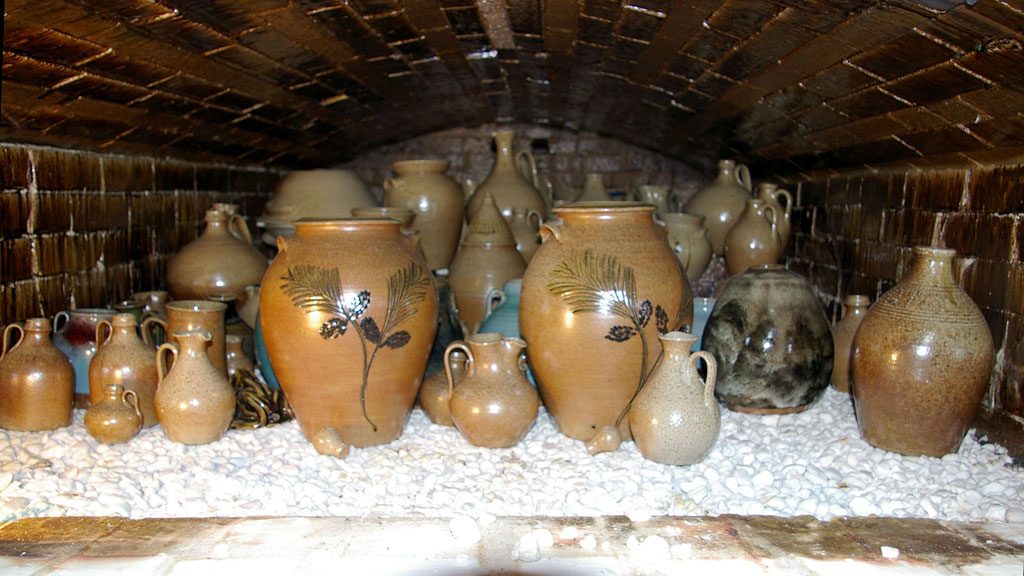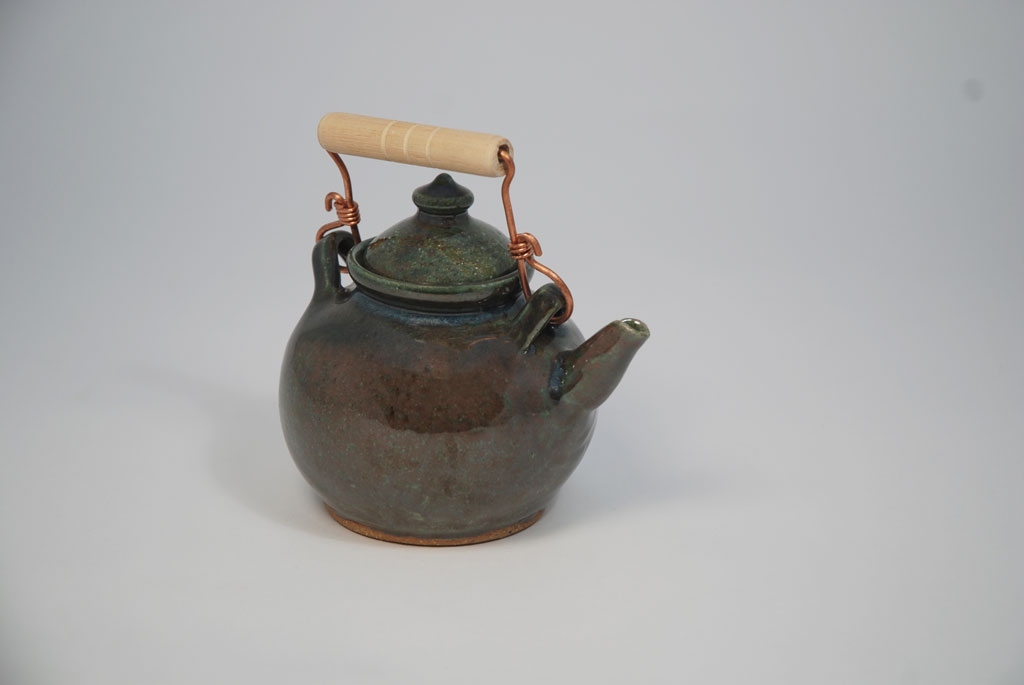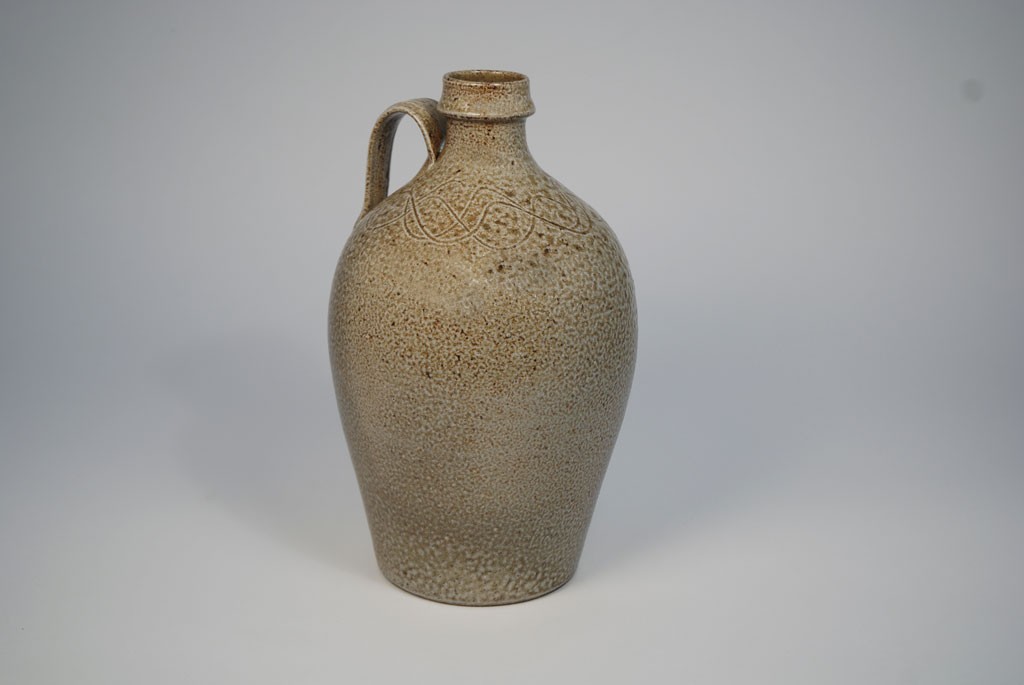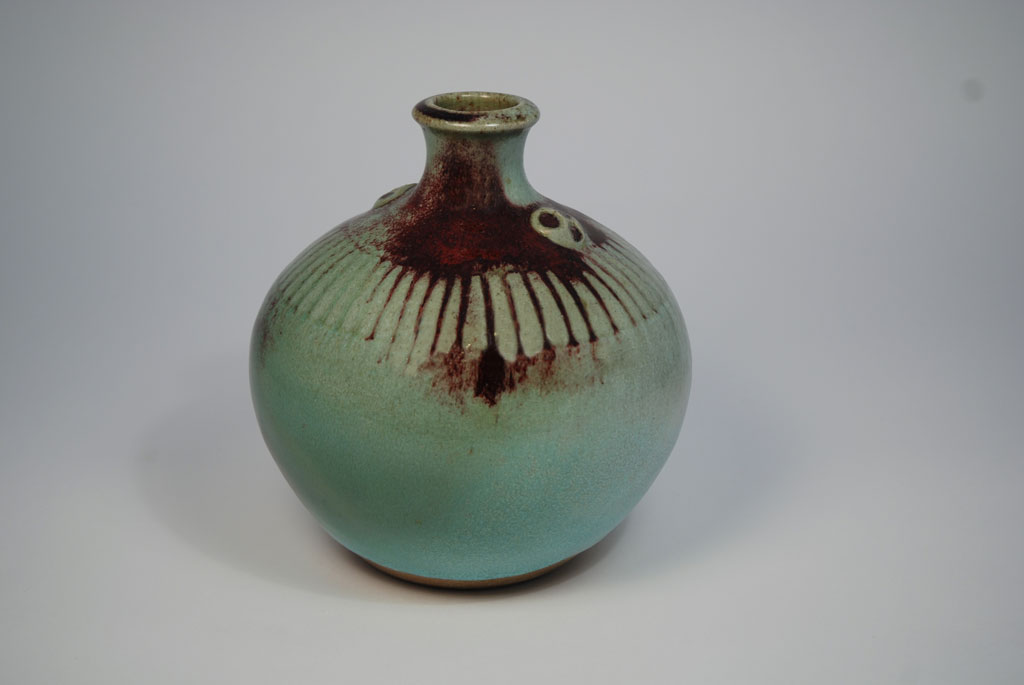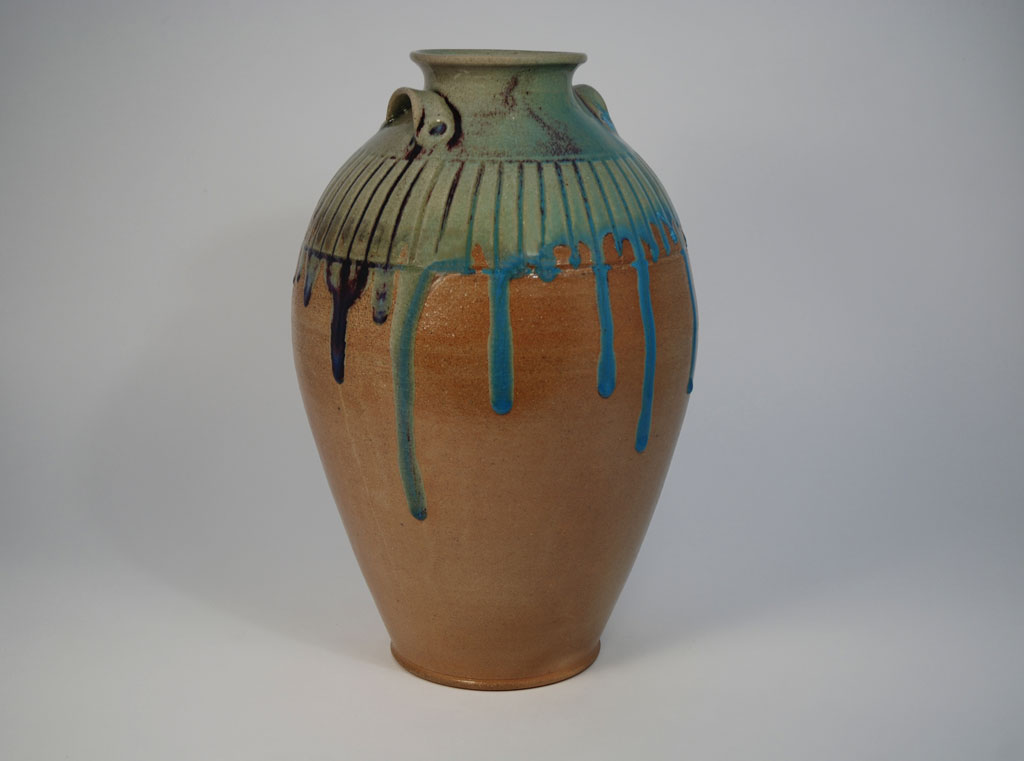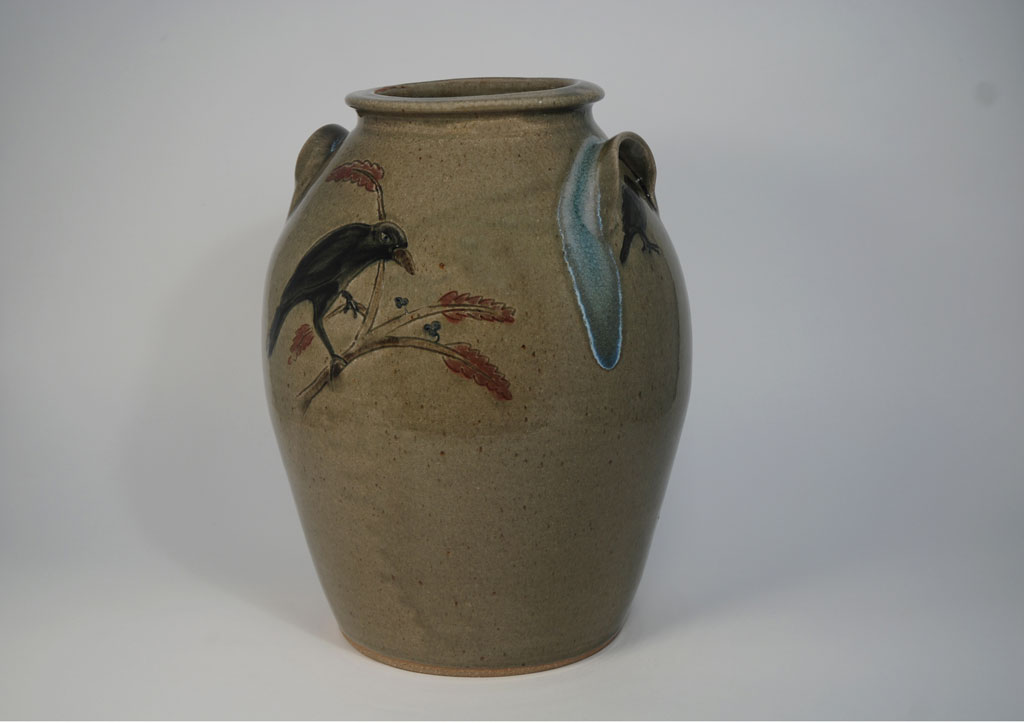loading...
Jugtown Pottery
Jugtown Pottery, a working pottery and an American Craft Shop, is located in Seagrove, NC in the community of Westmore and was started in 1917. It is just off Busbee Road, a road named for Jacques and Juliana Busbee, the founders of Jugtown. Both artists from Raleigh, NC, shared a love of pottery.
After a chance discovery of an orange pie dish that they traced back to Moore County, they discovered orangeware, earthenware, and salt glazed wares made by local potters. Salt glaze wares, were produced by adding salt to the kiln near the end of the firing at or near the maturing temperature of the clay. At times these were embellished with blue or simple incising. The pots were almost entirely utilitarian.
Here the Busbees saw an opportunity to be directors in the survival of a then dwindling craft. As they began to find a way to market these pots, Juliana set up the Village Store in Greenwich Village, NY in 1918.
The first potter to work with the Busbees was J.H. Owen (b. 1866), who learned to turn under Pascal Marble, whose shop was south of Seagrove. He turned, decorated and fired these pots at his pottery, which is now the Owens Pottery, as the Jugtown shop was not yet built. Purchased by the Busbees, the pots were then sent up to the Village Store Tea Room.
Charlie Teague was the second known potter to be hired by the Busbees. Charlie was born in 1901, the son of potter John Wesley Teague. He learned to turn in his father’s shop and was the first potter to work on location at Jugtown in the brand new workshop built in 1921. Charlie worked at Jugtown Pottery until 1931. He died of pneumonia in 1938 at the young age of 37.
Ben Owen was hired as the third known potter for Jugtown Pottery in 1923. He was born in 1904, son of potter Rufus Owen. Ben learned to turn in his father’s shop. He joined Charlie Teague at the pottery and they worked together for ten years. Circa 1932, Ben became the sole potter at Jugtown. A willing and skilled young turner, Ben produced many extraordinary forms for the Busbees for over thirty years. He traveled at times to museums and socials with the Busbees.
Jacques Busbee died in 1947 and in 1959 the pottery was sold to John Mare. Ben left to set up his own shop, Ben Owen Master Potter, which is now the pottery of Ben Owen III. After John Mare bought Jugtown Pottery, Juliana lived in the Busbee cabin until her death in 1962.
Mare hired Vernon Owens as the Jugtown thrower. Vernon was born in 1941, son of M.L. Owens and grandson of J.H. Owen. Vernon learned to turn in his father’s workshop and by age 7 was making pots to sell. At Jugtown he was encouraged to hone the skills he had developed. At first he dutifully copied the forms of early Jugtown pieces but that became a frustration and instead he let the old pots be an inspiration to develop his own forms.
After Juliana’s and Mare’s sudden death in 1962, Vernon leased the pottery and kept it going until 1968 when it was sold to Country Roads, Inc, a nonprofit corporation whose mission was the preservation of hand crafts. He worked closely with the director, Nancy Sweezy. In 1960, Vernon turned the pots while Charles Moore and brother, Bobby Owens, glazed, loaded, and fired the kilns. Nancy developed a variety of glazes while she was at Jugtown.
Through the apprenticeship study program set up by Sweezy, over thirty pottery students came to study at Jugtown from 1969 through 1980. Pam Lorette was one of those apprentices who came in the late 1970s to study at Jugtown.
In 1983 Country Roads, Inc. moved on to another project and Vernon bought the pottery and has been running Jugtown with his wife, Pam Owens. Pam and Vernon opened the Jugtown Museum in 1988. The Museum provides information and inspiration on Jugtown’s early development. Jugtown Pottery was listed in the National Register of Historic Places in 1999.
Today Jugtown still follows the same approach to pottery as laid out by the Busbees. Vernon, Pam, and son Travis are the main potters while Bobby Owens mixes clay and glazes the pieces. Form comes first, a simple continuous line, then a complimentary glaze and occasional decoration. These handmade pieces are either wood or gas fired. Drawing from the tradition, Jugtown Pottery creates fine traditional jugs and candlesticks in wood fired salt glaze and frogskin, and tableware’s in green, blue, brown and gray as well as deceptively simple vases, bowls and jars in glazes made with wood ash, local clays, copper reds, greens and iron earthtones.
